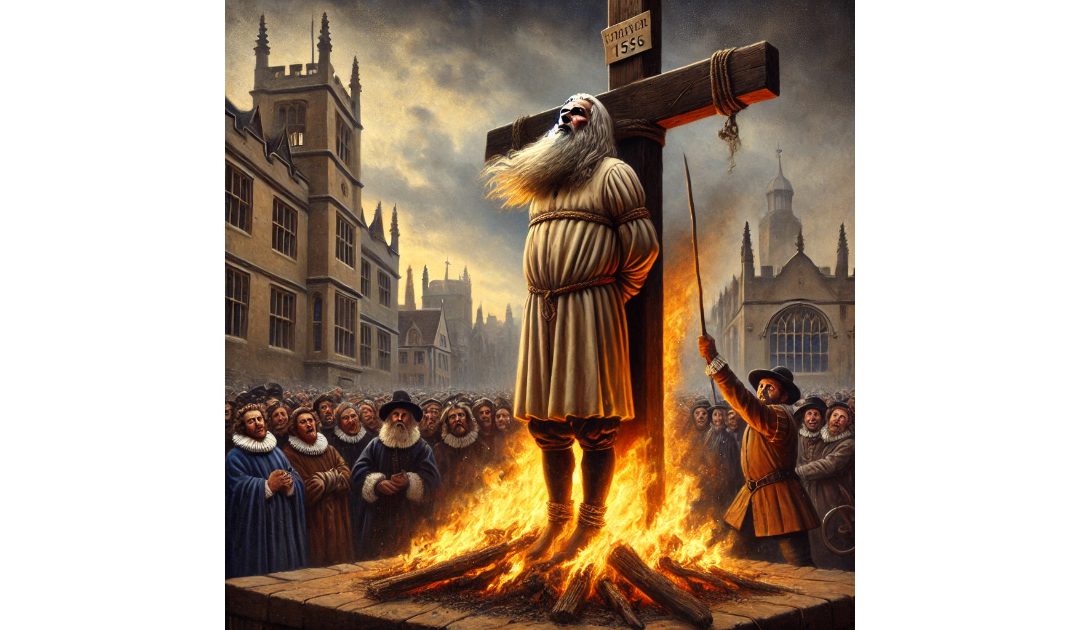Thomas Cranmer, born on 2 July 1489 in Aslockton, Nottinghamshire, was a seminal figure in the English Reformation. His life and work played a pivotal role in shaping the Church of England as it transitioned away from Roman Catholicism. As the first Protestant Archbishop of Canterbury, Thomas Cranmer was instrumental in making religious reforms that aligned with the burgeoning Protestant movement across Europe.
Thomas Cranmer’s early life was steeped in the realm of academic and religious study. He attended Jesus College, Cambridge, where he earned a Bachelor of Arts degree in 1511 and proceeded to a Master of Arts in 1515. By 1523, Cranmer had become an ordained priest, deeply engaged in theological studies. His scholarly pursuits positioned him uniquely for the roles he would later take on during one of England’s most turbulent periods of religious transformation.
The Reformation era was marked by a profound questioning of the Catholic Church’s authority, driven by figures like Martin Luther and John Calvin. In England, the reformation had a uniquely political dimension, largely due to King Henry VIII’s desire to annul his marriage to Catherine of Aragon. The Pope’s refusal to grant an annulment set the stage for Henry’s historic break with the Roman Church.
Cranmer’s entry into the royal circle came through his involvement as an academic at Cambridge, where his ideas on reform began to take shape. His proposal that Henry consult universities across Europe on the question of annulment gained him the attention of the king, who was eager for solutions that could bypass papal authority. Cranmer’s subsequent appointment as the Archbishop of Canterbury in 1533 signalled a turning point in English religious life.
As Archbishop, Thomas Cranmer was at the helm during the turbulent years of Henry VIII’s reign. He facilitated the annulment of Henry’s marriage to Catherine, thereby legitimising the king’s subsequent marriage to Anne Boleyn. This act was a catalyst for severing England’s ecclesiastical ties with Rome, marking the formal beginning of the English Reformation.
Cranmer’s influence extended beyond political manoeuvring. He was a significant force in the development of the Book of Common Prayer, a cornerstone of Anglican liturgy that introduced English vernacular into church services. The Prayer Book was a radical departure from the Latin liturgical texts, making religious services accessible to the English-speaking laity and reinforcing the Reformation’s focus on personal engagement with faith and scripture.
Cranmer also played a vital role in the development of the Thirty-Nine Articles, a document that outlined the doctrinal confessions of the Church of England, seeking to define and distinguish Anglican beliefs from those of the Roman Catholic Church. His theological contributions helped cement Protestant ideologies within the English church, even as they faced resistance from staunch traditionalists.
Despite his achievements, Cranmer’s life was fraught with challenges. Following Henry’s death, the ascension of the ardently Catholic Queen Mary I, Henry’s daughter by Catherine of Aragon, marked a perilous time for Protestant reformers. Cranmer, already vulnerable due to his significant role in the Reformation, was arrested and charged with treason and heresy. Under duress, Cranmer recanted his Protestant beliefs, but he dramatically revoked his recantations before his execution.
On 21st of March 1556, Cranmer was burned at the stake in Oxford. His final moments were marked by a poignant act of defiance; he placed the hand that had signed his recantations into the flames first, declaring it unworthy. Cranmer’s martyrdom epitomised the tumultuous spiritual and political climate of the time, cementing his legacy as a martyr of the English Reformation.
Cranmer’s legacy endures in the Church of England and in the broader history of Christianity. His theological and liturgical reforms have left an indelible mark on the Anglican tradition. By advocating for a church that spoke to the people in their own language and by laying the groundwork for Protestant theology in England, Cranmer remains a figure of profound historical significance, embodying the complex interplay of politics, religion, and personal conviction that characterised the Reformation era.

